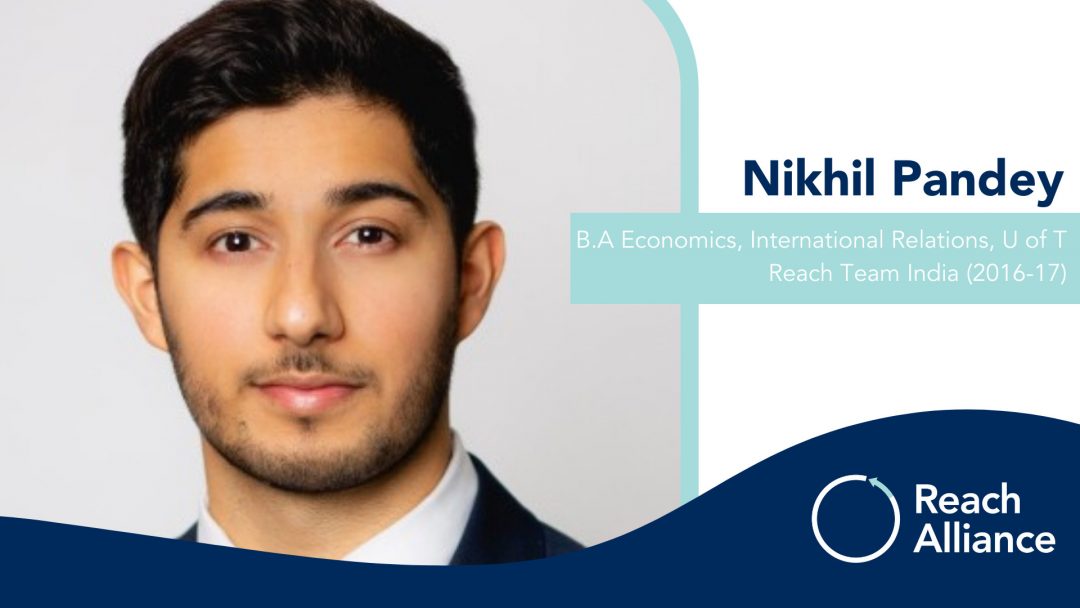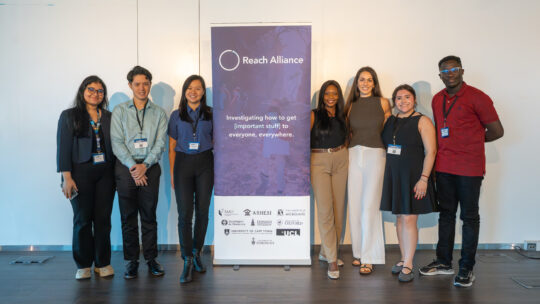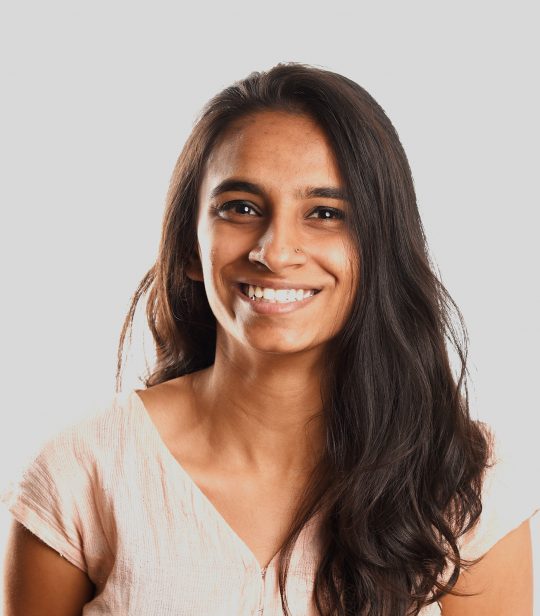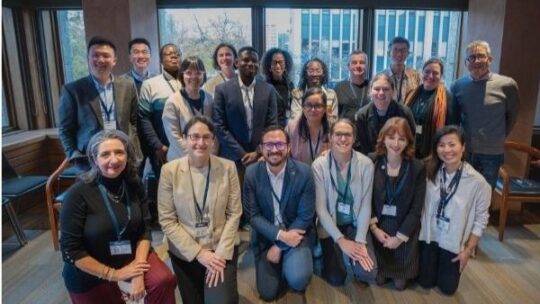Blogs: Latest Blogs, Alumni
Meet Nikhil Pandey of Team India 2016-17: Aadhaar Identification Program

Meet Nikhil Pandey (B.A Economics, International Relations) from Team India Aadhaar Identification Program
In 2020, you founded the Raise the Bar Law. Can you tell us more about that and some of the things you work on?
Raise the Bar Law is a free mentorship program for disadvantaged youth in British Columbia seeking to become lawyers. While diversity within the B.C. legal profession has improved considerably in the last few decades, there are still gaps – namely the lack of lawyers from low socioeconomic and other disadvantaged backgrounds. Raise the Bar works with local school districts to provide free one-on-one mentorship, class presentations, and a mentor-mentee pairing program. The goal of Raise the Bar is ultimately to provide academic and professional mentorship and introduce students to the legal profession who might not otherwise have any exposure.
How did your experience in Reach inform your career path [e.g., your case study focused on India’s Aadhaar Identification Program – how (if at all) did this impact you seeking an opportunity after graduating?
The Reach program opened my eyes to how important local organizations are in achieving large-scale policy success. As with many other projects studied in Reach, India’s “Aadhaar” program owed much of its success to local organizations which toiled relentlessly to bring the identification program to the last few residents of each area. To that end, my Reach experience taught me that policy change will often begin and end with local efforts, and to not underestimate what can be achieved at the local level.
What takeaways or skills [personal or professional] did you gain from your Reach experience that you are applying to your work or study?
Among other skills, Reach provided me with an unparalleled experience in networking. I often recall the hard work and adventure our team experienced in developing an initial list of interview contacts. We started with an empty notebook in an office in Toronto, and months later, we were driving and flying all over India without enough time to interview all of the contacts we had organized. We met executives of India’s top companies, deputies of Indian ministries, heads of NGOs, and even local workers with experience working in remote villages.
What is your fondest memory from your experience in Reach?
Our visit to the village of Doomroli, Rajasthan was my fondest memory. We had driven several hours outside of New Delhi, many of which were spent driving on off-beaten roads, to meet a local team who had been servicing a small village (of under 5,000 residents). We met the local residents and studied the local technologies the team had employed. We were awe-struck by their ingenuity. Observing how local organizations implement lofty policy objectives decided miles away, was a truly unique experience.
What advice would you give to researchers who are starting the case study production process?
Reach provides its students with an incredible opportunity to add novel contributions to the international discourse that surrounds a policy area. Researchers should diligently learn as much as possible about their topic prior to attending the field. Doing so will allow you to focus on the gaps in the policy discourse, and allow you to add unparalleled value. Ultimately, you may be able to offer a small piece of knowledge from which a prospective program in another country could greatly benefit.
What tips or words of encouragement would you give to someone who is interested in applying to the Reach initiative?
One word: apply. Even for those who do not necessarily see themselves becoming policy researchers in the future, this program is an excellent opportunity for skill development. Even now as a lawyer, I find myself constantly drawing on skills I honed during my time at Reach – whether it be networking, researching, interviewing, dealing with confidential information, or public speaking. As those around me might say, I am sure “beyond a reasonable doubt” that you will love your Reach experience.
Reach recently launched an exclusive alumni portal. Can you speak to your experiences on the portal thus far? What are you most excited about as you use or begin to use it?
So far, I have set up a profile and viewed the profile of many of the peers I met during my time at Reach. It is stunning to see how, without fail, every single alumnus is now working in an excellent position. The Reach community is packed full of brilliant and public-minded individuals, and I am excited to keep in touch with everyone for years to come. I will look forward to assisting new generations of Reach researchers as they enter the ranks!



